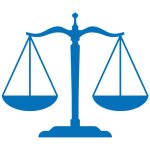Best Financial Services Regulation Lawyers in Senegal
Share your needs with us, get contacted by law firms.
Free. Takes 2 min.
Or refine your search by selecting a city:
List of the best lawyers in Senegal
About Financial Services Regulation Law in Senegal
Financial Services Regulation in Senegal is primarily aimed at ensuring stability and integrity in the financial sector, protecting consumers, and promoting market confidence. The banking and financial sectors in Senegal are regulated by both national laws and regional regulations, particularly by the West African Monetary Union (WAMU) and the Central Bank of West African States (BCEAO). These bodies set standards for banking operations, capital markets, insurance, and other financial services to ensure they operate efficiently and transparently.
Why You May Need a Lawyer
Legal assistance in the realm of Financial Services Regulation may be necessary for several reasons. Common scenarios include:
- Ensuring compliance with complex regulatory requirements for new and existing financial institutions.
- Resolving disputes with regulators or between financial entities.
- Guidance on mergers, acquisitions, and other corporate transactions in the financial sector.
- Assistance with drafting and reviewing contracts to ensure compliance with regulatory laws.
- Representation in court or administrative hearings regarding financial services issues.
- Advice on protecting consumer rights or handling complaints related to financial services.
Local Laws Overview
In Senegal, financial services regulation is influenced by several key legal frameworks:
- The Uniform Act on the Organization and Harmonization of Business Laws in Africa (OHADA): Provides a comprehensive framework for business transactions in member states, including regulations affecting financial transactions.
- The Banking Law: Sets the legal foundation for the establishment and operation of banks and financial institutions within the country.
- The BCEAO Regulations: Enforced by the West African Economic and Monetary Union (WAEMU), covering monetary policies, banking regulations, and anti-money laundering directives.
- The Insurance Code: Governs the activities of insurance companies to ensure they adhere to regional standards and protect policyholders.
Frequently Asked Questions
What is the role of the BCEAO in Senegal's financial sector?
The BCEAO acts as the central bank governing monetary policy within the WAEMU region, ensuring financial stability and supervising banking regulations in Senegal.
Do I need approval to start a financial services business in Senegal?
Yes, you must obtain appropriate licenses and adhere to the regulations set by the BCEAO and the Senegalese Banking Law before starting any financial services business.
How are consumer rights protected under Senegal's financial services regulations?
Consumer rights are safeguarded through laws that require transparency, fair treatment, and protection against unfair practices by financial service providers.
What are the penalties for non-compliance with financial regulations?
Penalties can include fines, license revocation, administrative sanctions, and in severe cases, legal prosecution.
How does the Insurance Code affect my business if I sell insurance products?
Your business must comply with the standards and practices defined in the Insurance Code, including capital requirements, reporting, and adherence to ethical practices.
Can financial service disputes be settled outside of court?
Yes, parties can use arbitration or mediation as mechanisms for resolving disputes outside the formal court system, often offering a faster and less adversarial process.
What steps should I take if I suspect financial fraud?
Immediately report suspected fraud to the relevant authorities and consult with a legal expert to navigate the investigation process and protect your interests.
How often should financial institutions undergo audits?
Financial institutions are typically required to undergo annual audits to ensure compliance with regulatory requirements and financial integrity.
Are there restrictions on foreign investments in Senegal's financial sector?
While foreign investments are welcome, they are subject to specific regulatory compliance and may require authorization from relevant authorities.
What is the role of the Autorité de Régulation des Marchés Financiers (ARMF)?
The ARMF oversees capital markets in Senegal, ensuring that they operate fairly, transparently, and efficiently.
Additional Resources
There are several resources and organizations you can consult for further information and assistance:
- Central Bank of West African States (BCEAO): The central authority for monetary and banking policies.
- WAEMU Commission: For regional policies and economic integration details.
- Senegalese Ministry of Finance: Offers information on national financial policies and regulations.
- Autorité de Régulation des Marchés Financiers (ARMF): Regulates and oversees financial markets operations.
Next Steps
If you require legal assistance in Financial Services Regulation in Senegal, consider the following steps:
- Identify Your Needs: Clearly outline the issue you are facing and the type of legal assistance you require.
- Consult a Legal Expert: Reach out to lawyers or law firms with expertise in financial services regulation in Senegal.
- Prepare Documentation: Gather all relevant documents and information related to your case or query.
- Schedule a Consultation: Arrange a meeting with your chosen legal expert to discuss your needs and explore potential solutions.
- Explore Legal Options: Work with your legal advisor to develop a strategy that addresses your regulatory challenge effectively.
Lawzana helps you find the best lawyers and law firms in Senegal through a curated and pre-screened list of qualified legal professionals. Our platform offers rankings and detailed profiles of attorneys and law firms, allowing you to compare based on practice areas, including Financial Services Regulation, experience, and client feedback.
Each profile includes a description of the firm's areas of practice, client reviews, team members and partners, year of establishment, spoken languages, office locations, contact information, social media presence, and any published articles or resources. Most firms on our platform speak English and are experienced in both local and international legal matters.
Get a quote from top-rated law firms in Senegal — quickly, securely, and without unnecessary hassle.
Disclaimer:
The information provided on this page is for general informational purposes only and does not constitute legal advice. While we strive to ensure the accuracy and relevance of the content, legal information may change over time, and interpretations of the law can vary. You should always consult with a qualified legal professional for advice specific to your situation.
We disclaim all liability for actions taken or not taken based on the content of this page. If you believe any information is incorrect or outdated, please contact us, and we will review and update it where appropriate.
Browse financial services regulation law firms by city in Senegal
Refine your search by selecting a city.









